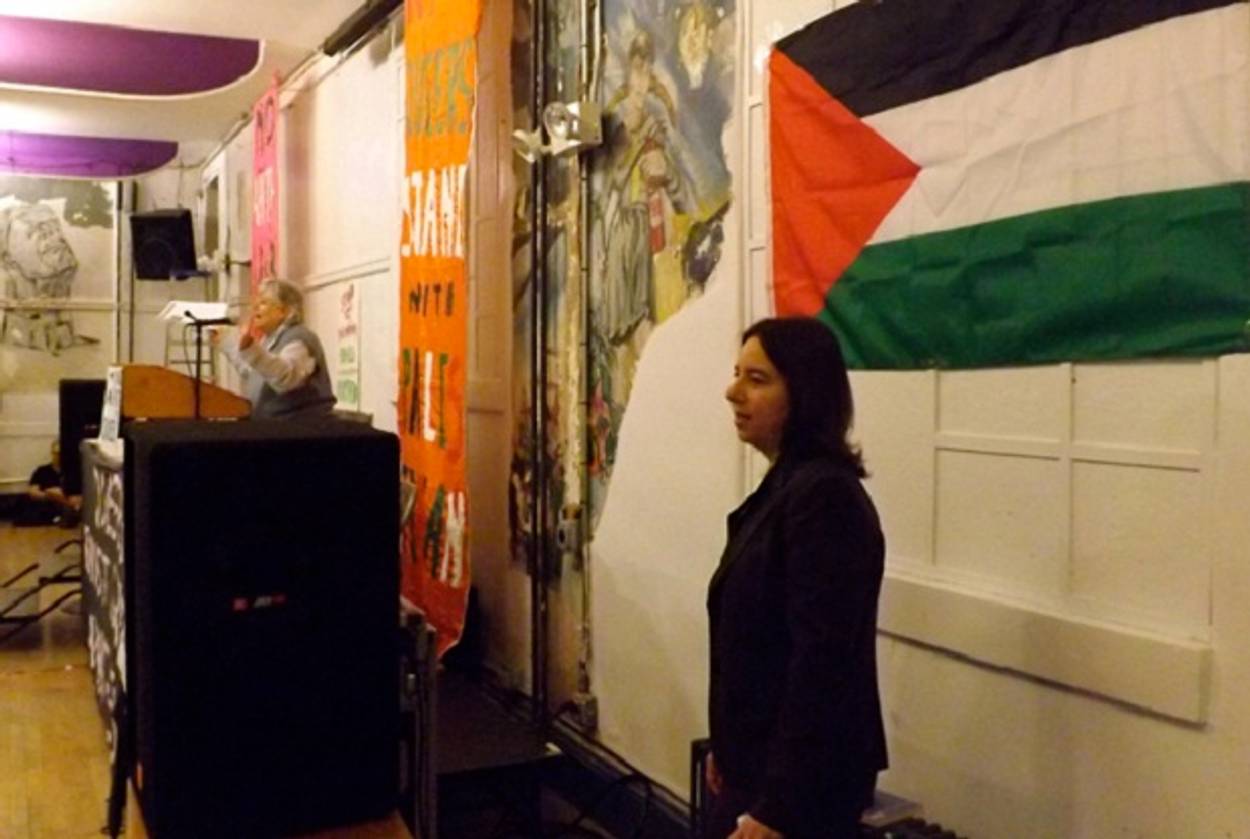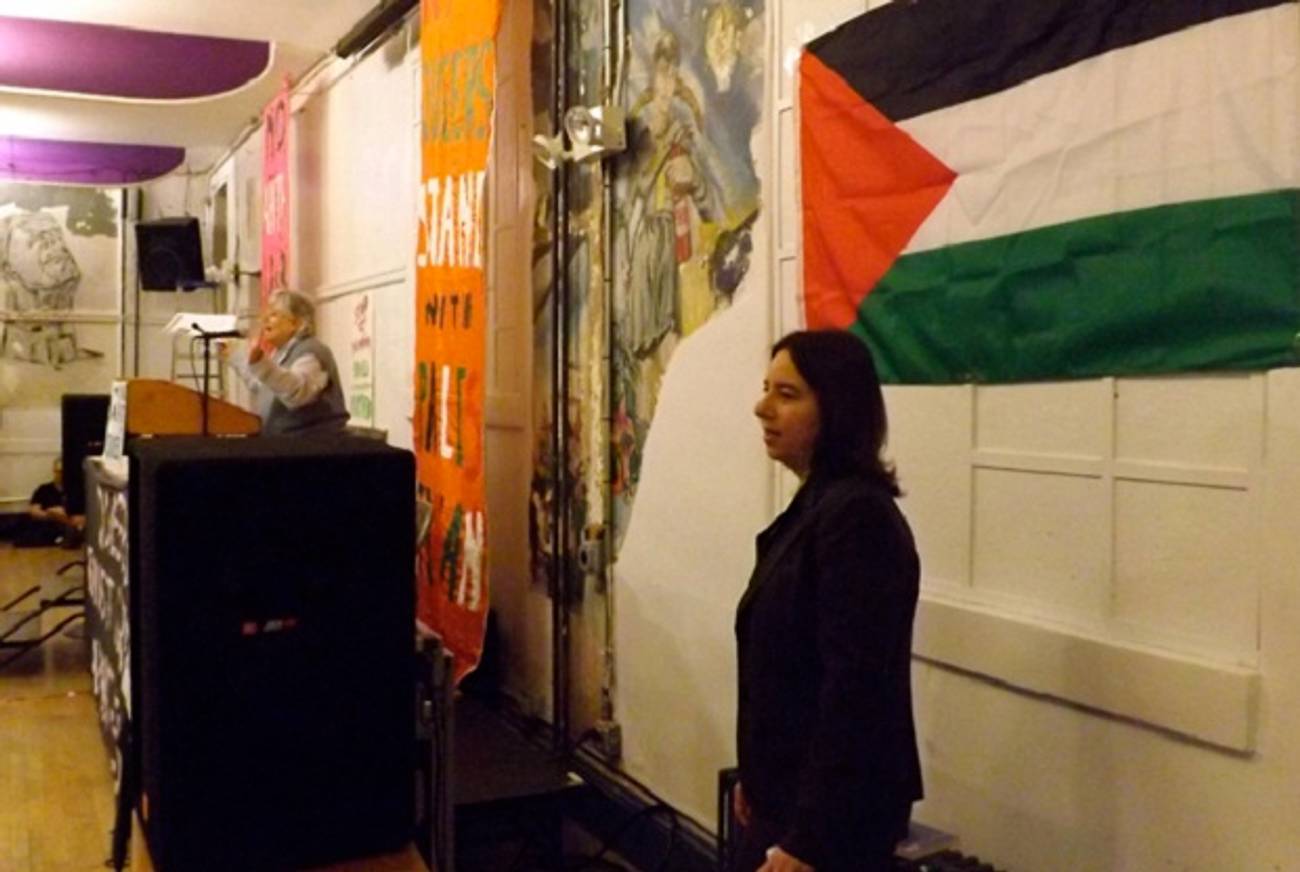Sarah Schulman ‘Doesn’t Know’ About Hamas
What happened when I asked the BDS academic about the anti-gay Islamist group




Whatever else you might say of Hamas, at least give the Palestinian Islamist group credit for its honesty. Take Hamas’s founding covenant, first issued in 1988 and unrevised since then. Article 7 declares: “The Day of Judgment will not come about until Moslems fight Jews and kill them.” When it comes to domestic matters, Hamas is equally open about its goal of establishing a theocratic tyranny in Palestine: Just last week Hamas banned women from an annual Gaza marathon organized by the United Nations, leading to its cancellation by the U.N.
You’d be hard-pressed to find the same degree of honesty in the “boycott, divest and sanction” movement that paints Israel as an “apartheid” regime and an unabashed aggressor determined to lord over Palestinians. To achieve these aims, the activists and academics who make up the BDS movement must remove all moral complexity from the century-long conflict, including by portraying the Palestinian national cause as wholly benign—denying even the most obvious facts about the Palestinians.
I got a taste of this mendacity last Monday at the New York City LGBT Center in downtown Manhattan, where a large crowd had gathered to hear the author Sarah Schulman discuss her new book, Israel/Palestine and the Queer International. Schulman teaches at CUNY Staten Island, but she was briefly thrust into the national spotlight with a November 2011 New York Times op-ed, in which she argued that Israel’s famous tolerance for sexual minorities is actually part of a campaign to “pinkwash” its repression of Palestinians.
Schulman’s book picks up where her op-ed left off, recounting her metamorphosis from an English professor mostly indifferent to the troubles in Palestine into a partisan of the BDS cause. She described her trip to Bilin, the West Bank village where residents have for years mounted nonviolent protests against Israel’s separation barrier. Here Schulman had an epiphany: “We’re marching around,” she recalled, “and then the Israeli soldiers appear. And it was such a weird feeling for me. Because of course they look like me. Because if I was there I would be them, maybe, or something, who knows.” The soldiers, she claimed, began firing teargas at the activists for no apparent reason. “Something changed inside me. I remember asking myself, ‘Who is we?’ And me and those soldiers were not we. It was me and these queer Palestinian women I had met. . . . We were we. . . . There was no more us.” This drew thunderous applause from the BDSers.
“What is we and who is they?” asked one audience member during the question-and-answer segment. “For me, we are all the people in the world who believe that by virtue of being born every human being deserves equal rights [and] self-determination,” Schulman responded. “That’s my we, that’s my team . . . They are people who are invested in systems of supremacy, whether it’s gender supremacy, religious or racial supremacy. Isn’t it amazing that that is controversial?”
I couldn’t help but raise my hand. “So is Hamas part of the ‘they?’” I asked.
Schulman answered: “Hamas—you know, every time I give one of these talks one guy asks about Hamas.” Then a flurry of protests: “I have never supported any political party! I don’t even support the Democratic Party!”
But of course I didn’t ask Schulman if she supports Hamas. “What I meant is: Is Hamas engaged in ‘systems of supremacy?’ Does Hamas fit into your definition of ‘they,’ of people who are implicated in ‘systems of supremacy?’ ”
“It depends?” Schulman responded, her tone seesawing between the declarative and interrogative modes. “You know, sometimes—I don’t know enough about Hamas to give you a complete, intelligent analysis of Hamas. But there are people who get into all kinds of movements because they have particular needs. And I don’t—let me say it this way: All over the world there is conflict between religion and politics. In the United States we are unable to separate religion and politics, and that’s true in Israel, it’s true in the Arab world, it’s true all over the world. Do I think that there should be religious governments? No, because I’m not in favor of that. I’m not a religious person, and I see it as a negative force in the world. But if people elect, democratically elect a religious government, that’s their government. That would be my answer.”
Here was the BDS movement in a nutshell. In a room filled with progressive activists, an American academic with unimpeachable progressive credentials claimed she didn’t know enough about Hamas to criticize its views on matters of gender and sexual orientation. She had heard somewhere that Hamas was “democratically elected”—apparently Schulman had missed the news about how, the last time Hamas seized power in Gaza, it was via defenestration—and that sufficed to render the group above judgment. Acknowledging the obvious about Hamas would have demoralized the BDS faithful gathered at the LGBT Center that night, and what sort of religious movement would want to do that?
Sohrab Ahmari is an assistant books editor at The Wall Street Journal.
Related: Pink Eye [Tablet]
Israel and “Pink-Washing” [NYT]
Sohrab Ahmari is the assistant books editor at The Wall Street Journal and co-editor of Arab Spring Dreams, an anthology of essays by young Mideast reformers.